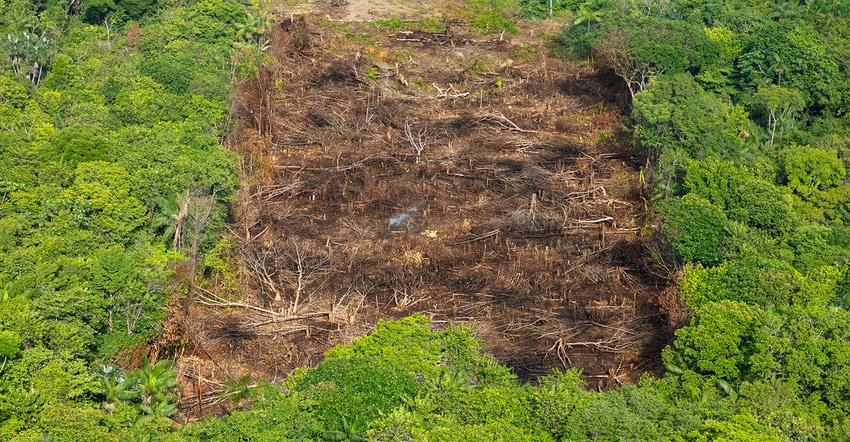
By Thomas Buckley and Agnieszka de Sousa
Some of the world’s largest food companies and grocers urged commodity suppliers including Archer-Daniels-Midland Co., Bunge Ltd., Cargill Inc. and Louis Dreyfus Co. to stop trading soybeans associated with deforestation in the Cerrado region of Brazil, a hive of biodiversity and one of the country’s most important carbon sinks.
Nestle SA, Unilever, McDonald’s Corp., Walmart Inc., Tesco Plc and other consumer-goods companies demanded in a letter that the traders refuse to trade soya from deforested regions of the Cerrado starting next year.
“We source much of our soy from the Cerrado region, so it’s vital we play a leading role in protecting this biodiverse region for future generations,” Anna Turrell, Tesco’s head of environment, said in a statement Tuesday. “We’re calling on traders to step up their own commitments and implement robust monitoring, verification and reporting systems within the region, and set a 2020 deforestation and conversion-free cut-off date for soy from the Cerrado.”
The letter was sent by more than 160 signatories of the Consumer Goods Forum’s Cerrado Manifesto Statement of Support. Other recipients were Cofco International and Viterra, a subsidiary of Glencore Plc.
Deforestation, Conversion
Five of the six traders responded but none agreed to the requests outlined, according to the statement.
Cargill, which is not a signatory of the statement of support, said it recognizes “the urgency to address deforestation and native vegetation land conversion in the Cerrado.” More than 95% of its 2019 crop was free of deforestation and such conversion, according to a statement.
“Cargill will not supply soy from farmers who clear land illegally or in protected areas, and we have the same expectation of our suppliers,” the company said
About 60% of the Brazil’s soybeans are grown in the Cerrado region, which has become a focal point of climate-change activism in recent years as President Jair Bolsonaro has prioritized expanding economic interests including agriculture over ecological conservation
Due to the deforestation associated with soybean farming in Brazil, companies are increasingly rejecting purchasing the commodity from the country. Last week, Norwegian salmon supplier Bremnes Seashore AS said it would no longer include soybeans from Brazil in its fish feed.
© 2020 Bloomberg L.P.
About the Author(s)
You May Also Like




